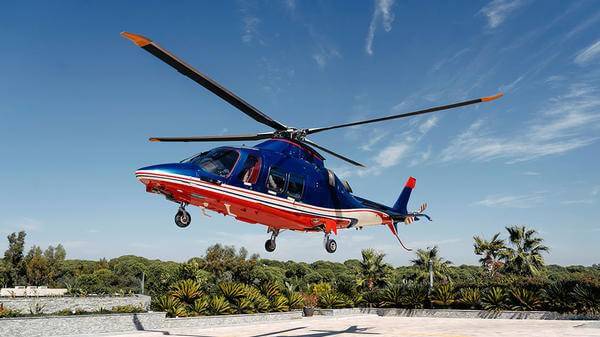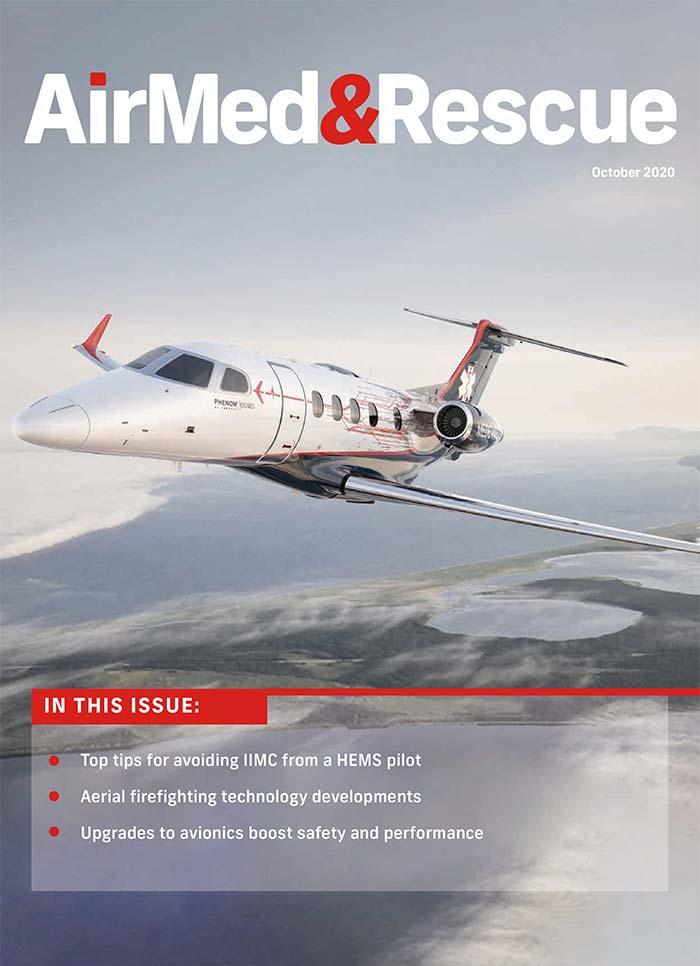Industry Voice: CAMTS on the audits during a pandemic

Conducting audits during a pandemic is a new challenge that has been met head on by accreditation organizations around the world, and, in the world of air medical operations, where quality is key, such audits are vital. Eileen Frazer explained how the CAMTS process has changed
In any accreditation process, there is an application process and an on-site audit that must be completed prior to a decision by the Board of Directors based on the findings of that audit. The Commission on Accreditation of Medical Transport Systems (CAMTS) uses the term ‘site visit’. Often, this site visit requires a presence at more than one site, since the main office, crew quarters, aircraft or ambulance and communications center may be in various locations. Often, there is more than one base of operations housing crews and aircraft.
Daily changes mean constant adjustment
2020 has been challenging for all of us, especially for healthcare providers. The news about widespread and local outbreaks of Covid-19 changes daily, depending on where you are. Dealing with the unanticipated consequences of a pandemic requires careful and creative steps, since most of us were unprepared for this type of crisis, including CAMTS.
Key risks to patients and crew identified
In the first part of the year, the CAMTS office received many calls and emails about our official position on transporting patients with suspected or diagnosed Covid-19. We made it clear on our website and through letters to accredited services that it is not CAMTS’ position to dictate whether or not a patient with suspected or known coronavirus should be transported. Medical transport is an integral part of healthcare, and transport is the conduit to get the patient to the most appropriate and definitive care.
Medical transport services have unique opportunities to address the challenges of transporting patients while keeping staff healthy and able to function with diminishing resources and higher needs. Accredited services have met these challenges with new processes that were never anticipated. We share the many resources our accredited services developed from educational videos to practices. Few serious illnesses among the crews who care for suspected and known Covid-19 patients have been reported.
Conditional accreditations granted
The CAMTS Board of Directors, like many other groups who meet regularly, meet by video conferencing, and continue to conduct the business of accrediting services by creating innovative practices. In one case, an international service was prepared for a CAMTS Global site visit, but the country closed to international visitors. Recognizing all the work involved in submitting the information prior to a site visit, the CAMTS Global Board reviewed the information and awarded a Conditional Accreditation. This is a one-year accreditation that recognizes the policies and practices in place meet CAMTS Global standards, and allows the program to apply for full accreditation in one year.

The Board of Directors for CAMTS and CAMTS Global also recognize that accredited services may not be able to meet pre-determined timelines, such as when an application or a progress report are due. Site surveys were delayed until June 2020, so the services with expired tenure of accreditation dates were given an ‘approved extension’, as listed on the website.
Polices were created to address conducting site visits during the pandemic as well. CAMTS does not penalize programs that need to make temporary changes in staffing or currencies not available in the expected time frame. As Winston Churchill once said: “It’s not enough that we do our best; sometimes, we have to do what is required.”
The following practices were put into place to address site visits:
- Scheduling site visits
- Site surveyors who routinely care for patients in their daily careers will not be scheduled unless they have a window of time free from direct patient care before and after a site visit.
- The CAMTS staff will monitor counties and states that have reported widespread coronavirus transmission and avoid those areas in arranging travel.
- Site surveyors who are within driving distance of a site visit and free from conflicts are given preference.
- Direct flights are preferable, avoiding hot spot areas for connecting flights if a direct flight is not possible.
- Before traveling for a site visit, Site surveyors shall provide an attestation that the Site surveyor has not tested positive with Covid-19 or had possible exposure to someone with Covid-19 in the previous 30 days. This attestation shall be signed and provided for our internal record keeping. Site surveyors may also be required to and shall comply with Covid-19 screening in place at the service, which is the subject of the site visits.
- Site surveyors shall provide a negative Covid-19 test result within seven days before travel, if available and possible. If such testing is not available, Site Surveyors shall complete our screening requirements (following CDC recommendations) before travel.

On-site expectations
Site visits will be limited to those that are new accreditation applicants and new base locations for reaccreditation visits. All satellite bases will be monitored for Covid-19 risks at the time of the visit to minimize exposures, and we may plan to do a Skype or video record of a base that is in a hot spot at the time of the visit.
For reaccreditations, only one site surveyor may be scheduled for single site programs at the discretion of CAMTS Executive staff.
Site surveyors shall wear masks and gloves during site visits, when checking aircraft or ambulances, and when in contact with any patient care areas. Masks and social distancing are required throughout the visit and interview process. Site surveyors will bring their own masks, gloves, and hand sanitizer for use during travel but will use the program’s PPE once they are on site to prevent any cross-contamination.
Site surveyors shall follow on-site protocols, such as checking visitor temperatures before entry and Personal Protective Equipment (PPE) requirements.
To minimize exposure, we will also ask for a private area to station the Site surveyor with computer access to conduct online interviews with key personnel. This will minimize travel and exposure between locations for the Site surveyor and the staff.
The CAMTS office closely monitors CDC recommendations and the many public webinars that bring new information on a weekly basis. Any new information or changes to our practices are on the website and we are available for questions and concerns.

October 2020
Issue
In this issue:
- Avionics modernization
- Firefighting technology updates
- IIMC – top tips for avoidance
- Interview: Manolo Guillen, CopterSafety
- Profile: AirCARE1
Eileen Frazer
Eileen Frazer, RN, CMTE, is the Executive Director of the Commission on Accreditation of Medical Transport Systems (CAMTS). Eileen is a former Chief Flight Nurse who served as the Safety Committee Chair for the Association of Air Medical Services and did the feasibility study in 1988 that led to the development of CAMTS. Eileen set up CAMTS as a non-profit corporation and wrote many of the policies and standards that guide the accreditation process.